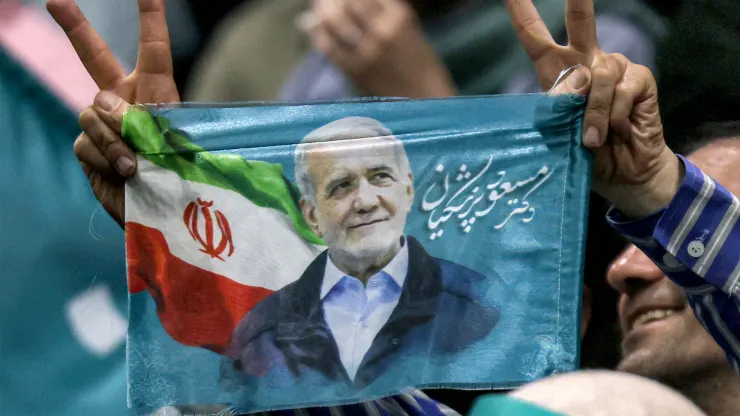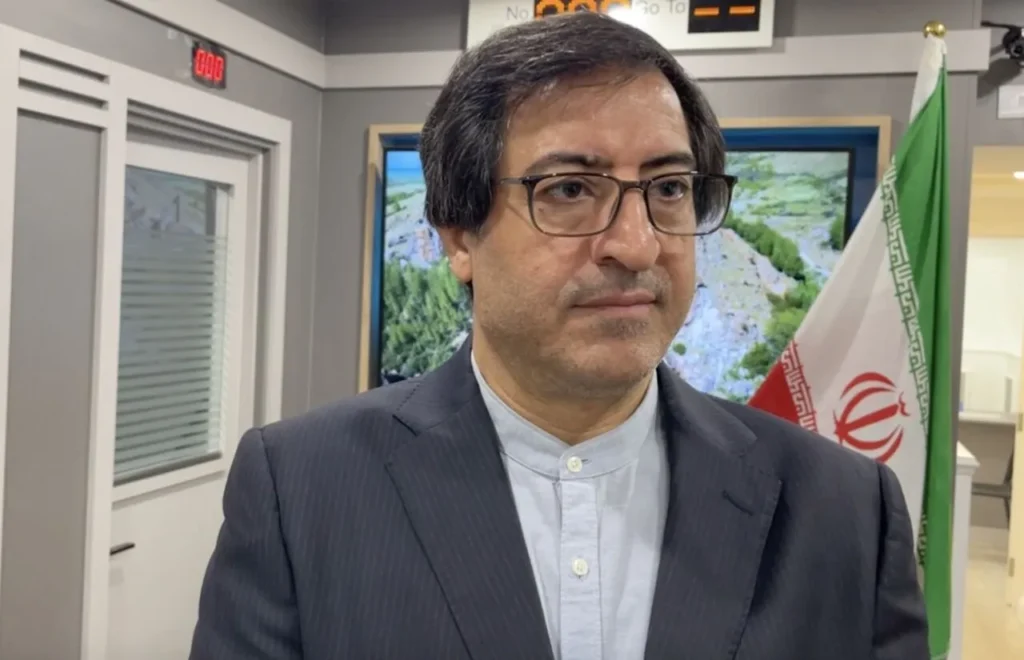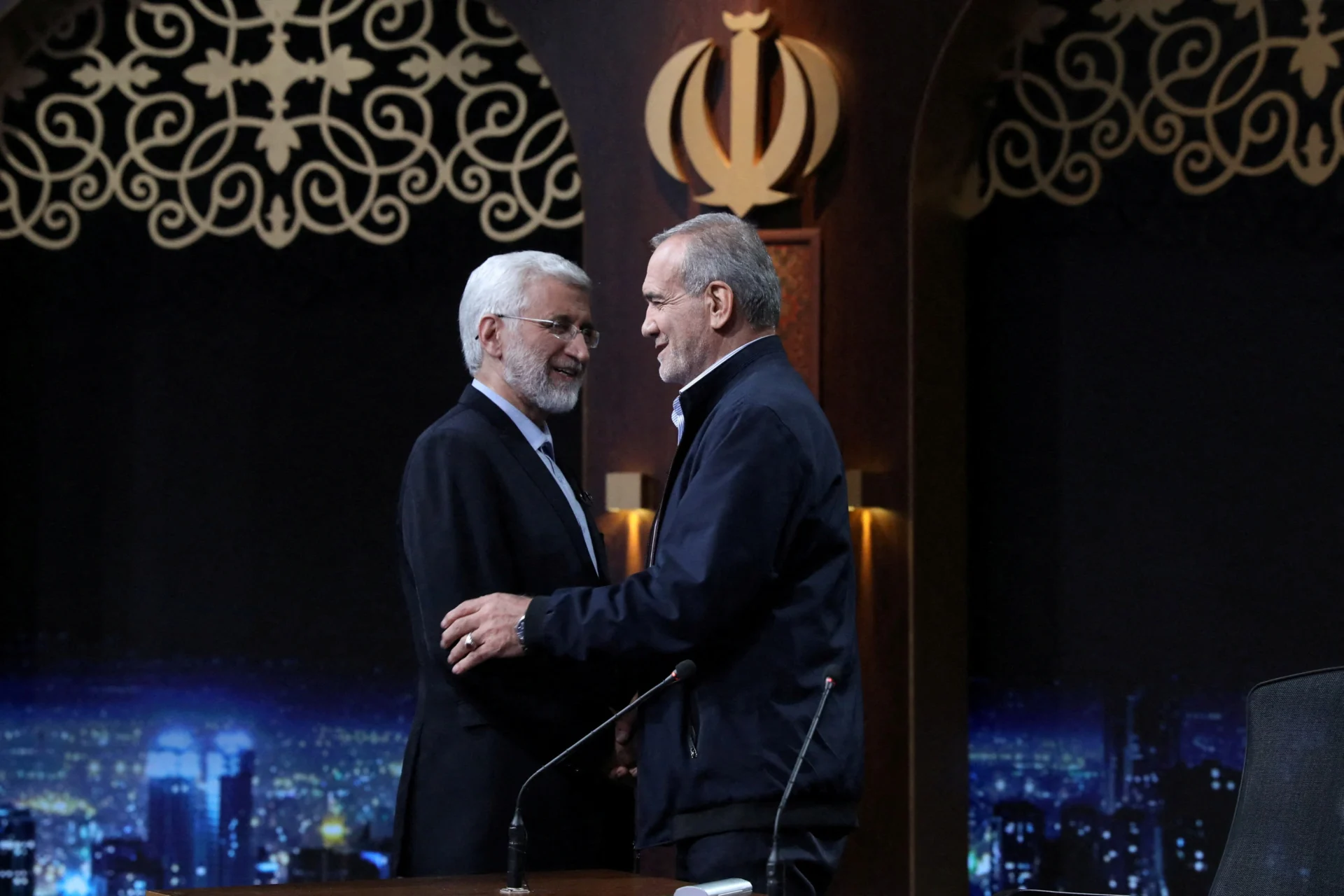After President Ebrahim Raisi’s untimely death in a chopper crash just one month earlier, Iranian Presidential elections were held on June 28, 2024.
With over 61 million eligible voters, Iranians went to polling stations on Friday to exercise their right to determine the course of their nation. Moreover, Friday’s election was held within the 50-day window stipulated by the Iranian constitution.
Amidst calls for high voter turnout by the Supreme Leader, Iran has recorded the lowest-ever voter participation since Iran’s 1979 revolution.
Here’s a detailed account of the highlights and developments from the Iranian presidential elections in 2024.
Call for High Voter Participation
Iran’s supreme leader, Ayatollah Ali Khamenei, officially kicked off the presidential election in Tehran on Friday morning. He further encouraged high voter participation to maintain the state’s legitimacy and fend off a crisis of credibility.
“People should not hesitate to participate in the elections. In order to prove the authenticity of the Islamic Republic system, the presence of the people is necessary and obligatory.”
Furthermore, the spokesperson for the Ministry of Foreign Affairs of Iran, Nasser Kanani, also urged Iranians to exercise their voting rights. “The widespread presence of people at the ballot boxes enhances our country’s national power and authority at the regional and international levels.”
“Dear countrymen; don’t miss the time to participate in the national epic elections. Every leaf, dear compatriots, is the basis for the increase of national authority and honor of Iran in the world.”
Candidates Face Voter Apathy
An aggregate of 61 million people was eligible to cast their votes, constituting the whole of Iran’s voting population. However, the voter participation turned out to be 40%, lowest ever recorded in Iran’s history since 1979.
Moreover, voter disengagement is also due to Iranians feeling demoralized by the country’s tragic protests in 2022–2023. In addition, Iran’s economy has been spiraling out of control due to ongoing struggles. This also includes over 40% inflation brought on by US sanctions over Iran nuclear program.
The polls opened early at 8 a.m. and closed late at 6 p.m., meaning that the voters had plenty of time to exercise their right to vote. International observers were also present to verify that the electoral process was fair and transparent, providing credibility to the proceedings.
“The trip of 180 foreign journalists to Iran for news and video coverage of the election developments illustrates the dimensions of this very important political event,” said Nasser Kanani.
Election Process
The election procedure in Iran follows a simple plurality system. This means that the candidate winning fifty-plus one votes takes the Presidential seat. Moreover, the Guardian Council, a strong constitutional authority, is vital to Iran’s presidential election.
This 12-member council, which is made up of six jurists and six clerics, is in charge of screening candidates for membership in the Islamic Republic. Only those conforming to Islamic values are deemed fit as presidential candidates.
Moreover, the council’s strict screening procedure verifies that candidates align with the nation’s values. The Guardian Council is overseen by Supreme Leader Ayatollah Khamenei.
It does so by assessing their political, social, and religious backgrounds. Furthermore, only six of the more than eighty contenders this year made it past the Guardian Council’s screening round.
Presidential Candidates 2024
Just before the eve of election, Amirhossein Ghazizadeh Hashemi and Alireza Zakani, both hardliner presidential candidates made the decision to drop out. While persuading other candidates to drop out, Hashemi said, “The front of the revolution will be strengthened.”
While Zakani didn’t want to split the vote and allow a reformist candidate to win. He said, “I withdrew to block the formation of a third administration.”
Subsequently, the final presidential candidates were Muhammad Baqer Qalibaf, Saeed Jalili, Massoud Pezeshkian, and Mostafa Pourmohammadi.
Using his position as Speaker of Parliament, Qalibaf, a conservative and former Revolutionary Guard officer, prioritized national security and military might.
Jalili, another hardliner, emphasized anti-Western views by drawing on his experience as Supreme National Security Council secretary.
On the other hand, Pezeshkian, the only reformist contender, supported political and human rights while putting up a unique outlook for Iran’s future. Pourmohammadi, a conservative cleric, supported upholding of clerical authority and customs.

Election Heads to a Run-Off
The official election results showed that the top two candidates were in a close race. Saeed Jalili came in second with 38.6% while Massoud Pezeshkian took the lead with 42.5% of the total votes.
Mostafa Pourmohammadi received 206,397 votes, while Mohammad Bagher Qalibaf received 33.8 million votes. Pezeshkian’s advantage against Jalili was narrow, at just 3.9 percentage points.

The results show a divided electorate, with the reformist candidate receiving a disproportionate amount of the vote. However, since no candidate was able to secure the necessary majority of votes, a runoff election will be held on 5th July 2024.
Condemning Violence Against Iranian Voters
In a new development, Mehdi Matinfar, Iran’s Charge d’affaires to London, denounced the intimidation of Iranian voters in the UK throughout the presidential election.
In a message received by Islamic Republic News Agency, he termed the attacks “quasi-terrorist acts.” Additionally, he detailed the physical and verbal abuse perpetrated by anti-Iranian organizations.

“All those individuals, who were involved in harassment against the voters taking part in the democratic process of electing a new president for Iran, should be held accountable in UK courts”, the diplomat further said.
He has requested the British government to ensure Iranian voters are secure for next Friday’s runoff election.
Moreover, the embassy has already written to the British government to express its disapproval. It has also highlighted the attempts being made to tamper with the voting process. The embassy has also requested guarantees for voter security.
Iran’s Charge d’affairs to London has reiterated that despite obstacles, the Iranian embassy remains dedicated to defending the security and safety of voters during the Iranian Presidential election round two.
Coordination Meeting on Run-Off Elections
In order to guarantee the smooth running of the second round of the Iranian presidential election overseas, the Foreign Ministry convened a coordination meeting on 1st July 2024.
Alireza Bikdeli, Deputy for Consular Parliamentary and Iranian Affairs emphasized how crucial it is to protect voters’ rights and keep voting places secure.

Also Read: Supreme Leader Khamenei kicks off Iranian presidential election
Director General of Consular Affairs, Ali Reza Mahmoudi presented a report highlighting the efforts to ensure the security of the election process in foreign offices.
The meeting aims to protect the rights and confidence of Iranian expats by ensuring a safe and transparent electoral process.
The author holds an MPhil degree in International Relations from National Defence University, Islamabad. She writes for South Asian Voices, CISS Insight and Hilal English.
E-mail: summaiyamalik.sm@gmail.com



